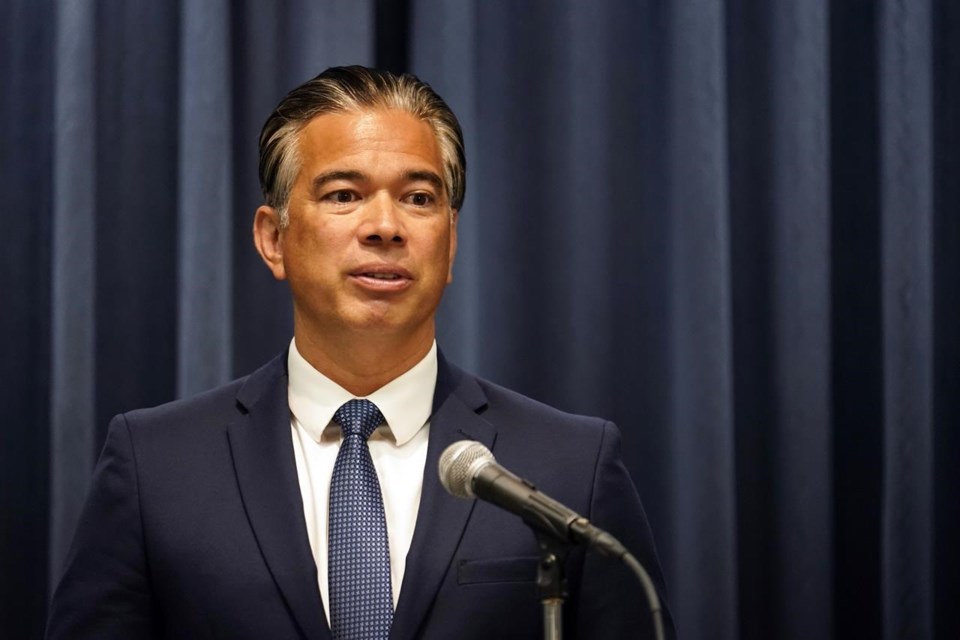SAN FRANCISCO (AP) — California Attorney General Rob Bonta on Thursday sued an anti-abortion group and a chain of anti-abortion counseling centers, saying the organizations misled women when they offered them unproven treatments to reverse medication abortions.
Heartbeat International, a national anti-abortion group, and RealOptions Obria, which has five anti-abortion counseling centers in Northern California, used “fraudulent and misleading claims” to advertise a procedure called abortion pill reversal, according to the lawsuit. Abortion pill reversal treatments are unproven, largely experimental and have no scientific backing, Bonta said in the lawsuit.
“Those who are struggling with the complex decision to get an abortion deserve support and trustworthy guidance — not lies and misinformation,” Bonta said.
Heartbeat International and RealOptions’ deceptive advertising of abortion pill reversal treatments violates California’s False Advertising Law and Unfair Competition Law, the lawsuit said. The suit seeks an injunction to block further dissemination of the claims by the defendants, as well as other remedies and penalties available under state law, according to Bonta’s office.
Despite the lack of scientific evidence and lack of certainty about its safety, Heartbeat International and RealOptions falsely and illegally advertise the treatment as a valid and successful option, and do not alert patients to possible side effects, such as the risk of severe bleeding, the lawsuit further said.
In an email to The Associated Press, Heartbeat International said it learned about the lawsuit through interview requests and that it had not been served.
"These women deserve the right to try and save their pregnancies. No woman should ever be forced to complete an abortion she no longer wants,” it said.
RealOptions did not immediately respond to a phone message from the AP seeking comment.
Founded in 1981, RealOptions has clinics in San Jose, Oakland, Redwood City and Union City. Its website offers pregnancy testing, pre-abortion screening and abortion pill reversal services.
Medication abortions involve taking two prescription medicines days apart — at home or in a clinic. The method, which involves mifepristone and misoprostol, became the preferred way for ending pregnancy in the country even before the U.S. Supreme Court overturned Roe v. Wade last year.
Advocates of abortion pill reversal treatments claim that if a pregnant person takes high doses of the hormone progesterone within 72 hours of taking the first drug — mifepristone — it will safely and effectively cancel the effects of the mifepristone.
Colorado this year became the first state to ban abortion pill reversal treatments, but the law won't take effect until the state’s medical, nursing and pharmacy boards determine whether such treatments are “generally accepted standard of practice” or not. Colorado's medical regulators have until Oct. 1 to decide and enact rules.
Colorado is currently the only state that has banned such procedures, according to the Guttmacher Institute, a research group that supports abortion rights. About a dozen states have passed laws compelling abortion providers to tell their patients about abortion reversal treatments.
The American College of Obstetricians and Gynecologists says so-called abortion “reversal” procedures are unproven and unethical.
“The horrifying reality is that right now there are more crisis pregnancy centers in California than abortion care clinics,” Bonta said. “Crisis pregnancy centers do not provide abortion or abortion referral, though they may want you to believe they do.”
Olga R. Rodriguez, The Associated Press




